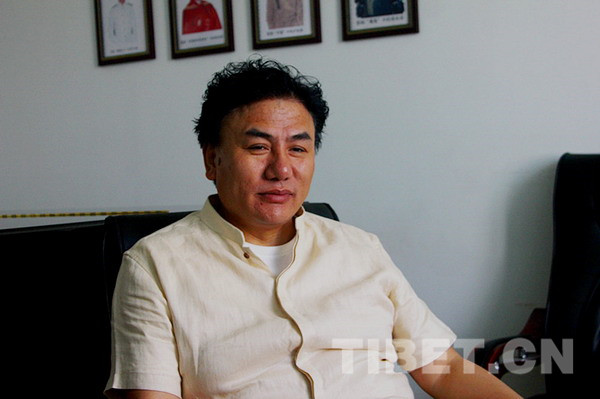 |
|
Tsering. [Photo/Tibet.cn] |
After graduating from Northwest University for Nationalities in 1987, he started his teaching career at Tibet University.
As a teacher of music appreciation, he liked to immerse himself in the school's CD archives whenever he found time.
One day, he discovered a Swedish soprano's disc and it was the first time he had heard western opera.
"It was very pleasing and so different from what I had learnt," Dorje said.
In 1990, he went to the China Conservatory of Music in Beijing for further study and became a student of late female soprano Jiang Ying (1919-2012). It was from Jiang that Dorje learned western music from scratch and gradually mastered the techniques.
After winning a few domestic contests, the Tibetan soprano was going places and in 1997 won first prize at the International Opera Competition in Marseille, France.
When he was invited to perform in the US in 1998, some Americans asked him whether there were opera houses in Tibet. Dorje assured them there were.
In 2000 he received a full scholarship from the Manhattan School of Music in New York.
During his two years of study there, Dorje won seven first prizes in American music competitions and played more than 10 roles in venues across the US, including the Metropolitan Opera House in New York.
Dorje returned to Tibet in 2009 and resumed his teaching career at Tibet University. "I came back because I'd like more people to know about Tibetan culture through music - the universal language," said Dorje.
During his years overseas, the he was constantly thinking about the connection between Tibetan music and western opera or western classical music. Now back on campus in Lhasa he was finally able to put his theories into practice.
Dorje said there are many good themes in Tibetan culture which can be used in opera.
"The diversity of music is vital for its growth and development...Tibetan classic folk music should adapt to the changes," Dorje said. "As the saying goes, what belongs to nationalities also belongs to the world and my understanding is that folk culture can be accepted by more people".